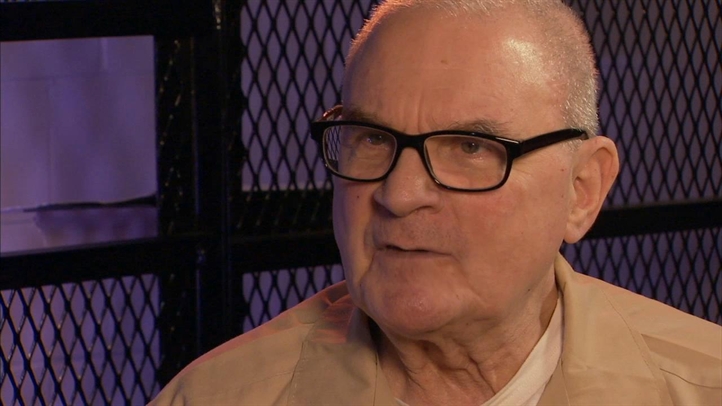Standing on a hilltop above his Wayne County cattle farm, Bob Rutledge surveys rolling hills and a sea of green grass.
His gaze falls to the earth beneath his worn brown boots, where he believes more than a mile below the surface lies an opportunity, natural gas.
But Rutledge, whose ragged blue jeans betray his love for hard work, will never know if that opportunity can be realized unless an obscure regulatory agency lifts its ban on drilling in the Delaware River basin.
"We don't know because we will never know,'' said Rutledge, 48, of Damascus Township, whose ancestors began settling here a few years before the Civil War. "To have it right at our fingertips and have it actually happening just 30 miles away is disappointing.''
While gas drilling thrives throughout the state, a large swath of northeast Pennsylvania still remains off-limits.
This is in stark contrast to what is happening in a neighboring watershed, the Susquehanna River basin. There, the Susquehanna River Basin Commission has exercised less control over the industry, leaving most of the regulation, besides water withdrawals, to the state.
In May 2010, the Delaware River Basin Commission, based in West Trenton, N.J., declared a moratorium on natural gas extraction within the basin, a nearly 14,000-square-mile watershed that straddles four states and is home to the Delaware Water Gap National Recreation Area.
Local
Breaking news and the stories that matter to your neighborhood.
Since then, environmentalists and landowners in favor of gas drilling have tried to persuade, through their attorneys and massive letter-writing campaigns, the commission to either completely close the door on the industry or open the watershed to wide-scale development.
Yet three years later, nothing has changed.
Environmentalists are pleased, but worried the commission may lift the moratorium.
Landowners, who want their land developed, are becoming more frustrated and fear gas companies will pull out.
Rutledge heads the Northern Wayne Property Owners Alliance, which banded together nearly 1,300 families to lease tens of thousands of acres for development to two drilling companies, Hess Corp. and Newfield Exploration Co.
Those companies, which partnered to explore the potential of the Marcellus Shale in Wayne County, have exercised a provision in their lease with NWPOA that allows them to halt lease payments to landowners until the commission lifts the ban.
"It just aggravates me, because we went through a lot of effort and spent a lot of time,'' said Rutledge, whose 500-acre farm is under lease.
Rutledge believes gas development would have a huge economic impact. Most of northern Wayne County is jobless wilderness and farmland. He listed community members who have committed suicide because of financial troubles.
If given the economic boom, a "farmer can work with something else than 50-year-old equipment,'' he said. "We got our beautiful scenery, but we're living in poverty. A lot of our members are getting fed up waiting ... because of a bunch of politicians working in other states.''
Politics is a real aspect to the battle over environmental and mineral rights concerns in the watershed, where much of the fight consists of behind-the-scenes negotiations and bickering
Then, there is the difficulty of trying to get five governments with vastly different constituencies to work together on a complicated and divisive issue.
The governors of Pennsylvania, Delaware, New Jersey and New York and a federal representative from the Army Corps of Engineers make up the five-member river basin commission board, which has the power to give the go-ahead or bar drilling with a single vote.
"It's not a simple process to develop a regulatory framework for something as complicated as natural gas drilling and have five governments work out the particulars,'' said commission spokesman Clarke Rupert.
A product of the Kennedy Administration, the commission is charged with protecting water quality and quantity in the basin, which provides drinking water to millions of people in New York City as well as numerous communities in New Jersey and Pennsylvania.
At the time the commission announced the moratorium, it said the move was necessary to allow for development of its own environmental safety regulations over the industry, which would be in addition to state environmental rules gas.
Meanwhile, more than 100,000 acres leased to gas companies in Wayne County cannot be drilled to extract gas.
Pike and Monroe counties and small portions of Lackawanna and Luzerne counties are also subject to the moratorium, although leasing has not been as extensive in these areas.
No Marcellus Shale well has been hydraulically fractured in the Delaware River watershed, but in the Susquehanna River watershed, scores of wells are producing gas.
Curt Coccodrilli's land straddles the dividing line.
He would like a gas well on his Jefferson Township, Lackawanna County, property near Archbald Mountain Road, except nearly all of his 125 acres lie in the Delaware River watershed.
A small sliver, about an acre or two, is in the Susquehanna River watershed.
He believes gas companies have been reluctant to lease his property because of the commission's ban, although some experts say there is no viable gas production potential in Lackawanna County.
That remains to be seen.
"To literally cut off a section of Pennsylvania, we feel like we are in no-man's land,'' said Coccodrilli, a member of the NWPOA who has other leased land by Hess and Newfield in northern Wayne County.
"We feel like we are second-class citizens in our own state,'' Coccodrilli said, likening it to an "economic iron curtain.''
"Three years later, there is just zero communication about it (with the DRBC),'' he said. "Just do something.''
The DRBC did allow a handful of exploratory wells to be drilled in Wayne County because those wells received permits from the state Department of Environmental Protection prior to when the moratorium was declared.
Texas-based Newfield Exploration Co. and New York City-based Hess Corp. drilled five exploratory wells as part of that agreement.
The agency released its rough draft of natural gas regulations for public review and comment in December 2010.
Afterward, pro- and anti-drilling concerns flooded the agency with tens of thousands of written comments about the rules.
In November 2011, the DRBC published another set of draft regulations, guided by public comment.
The commission scheduled a special meeting later that month to consider adopting the rules. The meeting was postponed and has never been rescheduled.
For Coccodrilli and other landowners in the basin, they are fed up with waiting and fear that gas companies like Newfield and Hess may walk away because it appears there will be no chance gas extraction will happen in the Delaware River watershed.
"Over here, we have commercially viable shale, and we can't extract it,'' said Coccodrilli.
"The anti-drilling community held them (the DRBC) hostage,'' he said.
That community couldn't be happier, but they realize any day the playing field could change.
All it takes is a vote.
"This moratorium is extremely fragile,'' said Barbara Arrindell, director of Damascus Citizens for Sustainability, an environmental group with an office just across the Delaware River from Wayne County in Narrowsburg, N.Y.
"Within 10 days they could call a meeting and pass'' the regulations, she said.
They have been fighting to keep gas drilling out of the basin. They believe the industry pollutes water and air, will ruin the Delaware River and spoil the vast, undeveloped forests in the basin.
"Overall, the cumulative impacts are huge,'' Arrindell said. The Delaware River basin ``is not ours to despoil. It's not ours to trash. It belongs to the future. ... Trucks, spills, do we want this? Should anybody be subject to this?''
She believes gas development will lead to the industrialization of the watershed, damage its pristine beauty, and harm human health.
"We were formed preliminarily in response to this threat and continue to regard it as the biggest threat to the environment and health of the watershed ... that we've ever seen,'' she said.
The commission does not have a vote scheduled to consider the revised drilling rules, Rupert said. He does not know when that will happen.
"As soon as we get the word ... we'll get that word out to folks as quickly as possible,'' he said. "They (the commissioners) continue to have discussions and consultations with each other (and) working cooperatively to reach a consensus.''
Original article here: http://bit.ly/13zHH6c



